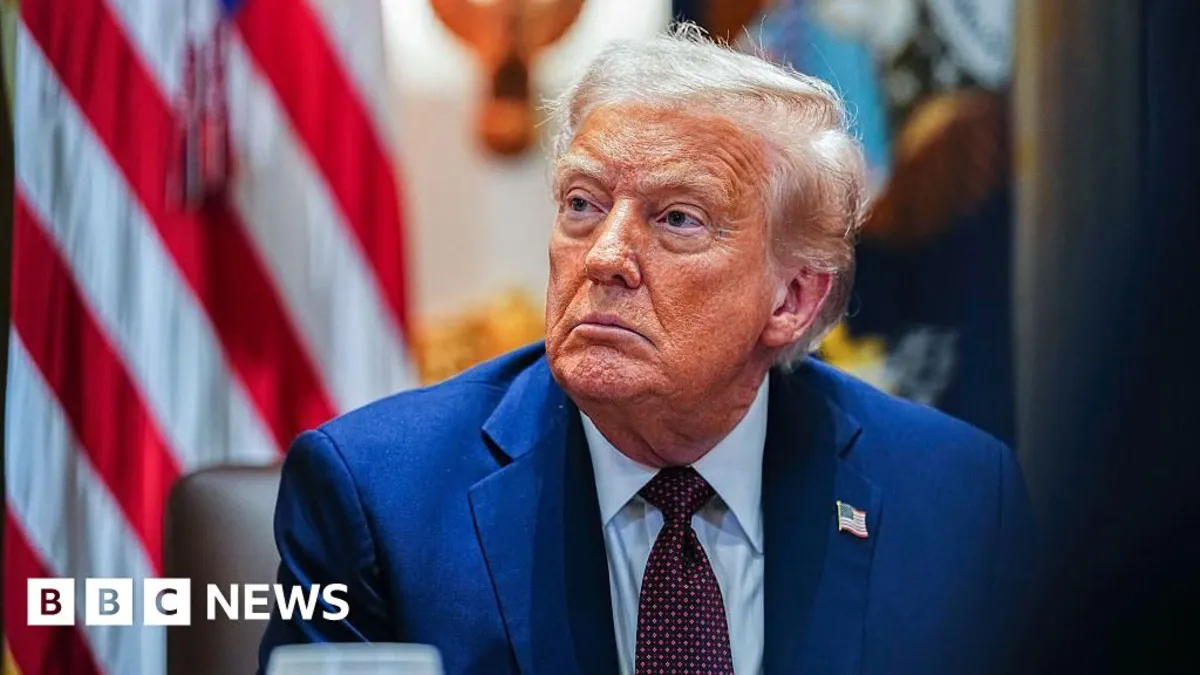
The Trump administration has initiated a controversial plan to cut $5 billion (£3.7 billion) in foreign aid that Congress had previously allocated earlier this year. This decision employs a little-known tactic called a pocket rescission. This maneuver allows the president to request the cancellation of funds already approved, but does so at such a late stage in the fiscal year that, if Congress does not intervene swiftly, the allocated money will lapse. The recent move is significant as it marks the first attempt at this budgetary tactic in nearly 50 years.
The implications of this decision are far-reaching, as it potentially circumvents the legislative branch's role in determining government spending. The White House Office of Management and Budget announced the cuts via a social media post on Friday, raising concerns about the legality of employing pocket rescissions. The funding being targeted includes approximately $3 billion designated for the U.S. Agency for International Development (USAID) and $900 million from the State Department. Additionally, cuts include around $800 million allocated for international peacekeeping operations and over $300 million intended to promote democratic values in foreign nations.
In a statement, the White House emphasized its commitment to reforming America’s fiscal policies by eliminating what it describes as “woke, weaponized, and wasteful” government spending. This move is framed as part of a broader effort to regain control over federal expenditures. Under the provisions of the Impoundment Control Act, President Trump has the authority to request the cancellation of funds that Congress has approved. Congress then has 45 days to vote on whether to uphold or reject this request. By making this request so close to the fiscal year’s end on September 30, there is a risk that the funds will go unspent if Congress does not act.
Legal experts have raised questions regarding the validity of pocket rescissions. The Government Accountability Office has expressed concerns that this budgetary tool undermines Congress's constitutional authority over financial matters, often referred to as the “power of the purse.” Senator Susan Collins, a Republican from Maine, has articulated that the Constitution clearly assigns Congress the responsibility for managing financial appropriations. She argues that any attempt to reclaim funds without congressional consent constitutes a violation of the law. Collins advocates for a more traditional approach, urging lawmakers to find ways to reduce spending through the established bipartisan appropriations process.
Senate Democratic Leader Chuck Schumer from New York has also voiced concerns, warning that President Trump's use of the pocket rescission could disrupt normal congressional procedures and might lead to a damaging and unnecessary government shutdown. It is worth noting that the last president to utilize a pocket rescission was Jimmy Carter in 1977. Since taking office, President Trump has consistently reduced foreign aid, significantly restricting the operations of USAID, which he has criticized as being wasteful in its spending practices.
As this situation unfolds, the ramifications of the Trump administration's decision to cut foreign aid will likely continue to stir debate among lawmakers and experts alike.